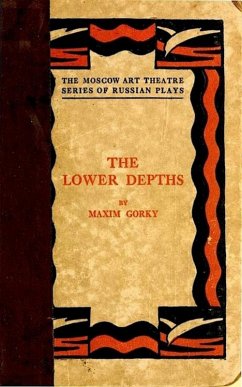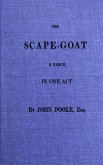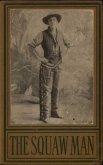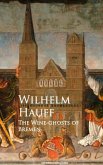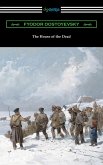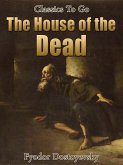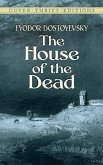De profundis ad te clamavi. In this phrase, with his penchant for epitome, the late James Huneker summarized the masterpiece of Russia's single living master of the drama, Maxim Gorky, as he saw it in Berlin under the German title of "Nachtasyl" or "Night Lodging." "Na Dnye" is the Russian-literally "On the Bottom." Partly because "The Lower Depths" is a more faithful rendering of the original than "Night Lodging" and partly because it implies so vividly the play's keynote as the shrewd Huneker detected it beneath a guise alien to both Russian and English, the title adopted by Laurence Irving for the British version has been preferred for its introduction to American audiences by the company which discovered it and first set it on its stage in Moscow, December 31 (our calendar), 1902. In "The Lower Depths" more than in any other single play throughout its history, the Moscow Art Theatre concentrates its dramatic ideals and methods, its esthetic theory and practice, and through the production of this play it most emphatically justifies its artistic faith in spiritual or psychological realism as a dramatic medium of expression. The plays of Tchekhoff, of course, serve the same ends, but no single one of them does so quite as richly as does Gorky's masterpiece. At the hands of Stanislavsky and his associates, "The Lower Depths" draws much of its convincing power from its unusual use of and dependence on the channels of expression which are peculiar to the art of the theatre. It is almost wholly independent of drama as literature. Less than any play I know, is it possible to imagine its potential effect in the theatre from a reading of its printed lines. [Pg iv]In my book, "The Russian Theatre," I have thus analyzed this factor: "'The Lower Depths' is not so much a matter of utterable line and recountable gesture as it is of the intangible flow of human souls in endlessly shifting contact with one another.
Dieser Download kann aus rechtlichen Gründen nur mit Rechnungsadresse in A, B, BG, CY, D, DK, EW, E, FIN, F, GR, H, IRL, I, LT, L, LR, M, NL, PL, P, R, S, SLO, SK ausgeliefert werden.

